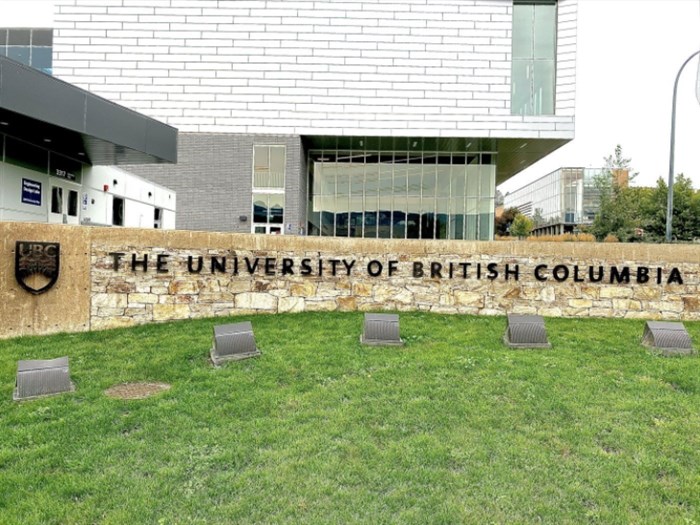
UBC Okanagan campus.
Image Credit: Athena Bonneau
December 07, 2020 - 8:00 PM
Ian Foulds holds a unique position at the University of British Columbia’s Okanagan campus.
Foulds is an associate professor and the principal’s research chair in Indigenous Reconciliation in Engineering.
“With Indigenous issues, most people were never taught or told, in my school, (the) School of Engineering, we have been working at educating our faculty in bite-size chunks,” says Foulds, who is an engineer and member of Métis Nation of BC.
He is developing a framework for preparing engineers to engage with Indigenous communities, developing models and best practices for incorporating Indigenous knowledge and perspectives into engineering curriculums.
Foulds was one of three speakers who participated in UBCO’s webinar on Science and Systemic Racism.
“(Systemic racism) is something we work to avoid in our scientific experiments. We make sure we are inclusive of underrepresented voices,” he explained during the seminar. “People who do not face them (systemic barriers) probably don’t even know they are there.”
The two-hour webinar also featured Magdalena Skipper, editor in chief from Nature, and Alejandro Adem, president of the Natural Sciences and Engineering Research Council of Canada (NSERC).
The seminar, which took place on Nov. 26, was one of three in the series. The next two will be planned for the new year.
What is Systemic Racism?
While more and more discussions about systemic racism are happening, people aren’t always clear on exactly what it means.
“Systemic racism is the intentional racially motivated discrimination by the system,” Foulds explained to the group. In this category, Foulds would put things like the 1876 Indian Act, the 60’s Scoop and residential schools.
“These were intentional, racist and systemic acts that targeted Indigenous Peoples,” said Foulds.
“There is no question there is a problem of racism in science,” Skipper told participants.
“Many genetic and biological studies have historically been focused on populations of European ancestry, to achieve the promise of the sequencing of the human genome and precision medicine.”
But, Skipper said changes are being made to enable the future generation of researchers to break down these barriers.
“Nature finds it essential to have an inclusive-focused exploration for diseases of diverse ability, because it helps to find treatment for all ethnicities,” Skipper explained.
Taking action
Three federal research grant agencies are taking actions to promote equity, diversity, and inclusion within the agency, academic institutions and across the research enterprise, according to Adem.
He explained that these include the Canadian Institutes of Health Research (CIHR), the Natural Sciences and Engineering Research Council (NSERC), and the Social Sciences and Humanities Research Council (SSHRC).
NSERC has been working with institutions across Canada to develop strategies to become more inclusive of racialized groups, said Adam.
“Recent results from [Statistics Canada] research survey on post-secondary faculty and researchers showed higher rates of harassment and unequal treatment being reported by those who self-identified as Indigenous or a member of a visible minority,” Adem explained.
In response, NSERC has been creating new supports and positions in institutions, such as an Indigenous students center and a Black support coordinator, according to Adem.
“We encourage institutions to recognize intersectional identities and to create more diverse communities,” Adem said.
UBCO says they are also committed to identifying, addressing and supporting racialized students and faculty to succeed.
“UBC Okanagan has taken several steps lately, to ensure they have an inclusive campus,” said Santa Ono, president and vice-chancellor, UBC, during the opening remarks of the webinar.
He pointed to the fact that UBCO has created a new inclusion action plan, with a new senior adviser on race and inclusive excellence.
“The senior adviser will support and meet with groups on anti-racism and communities of colour and develop an outreach strategy,” Ono explained. “They will work inside and outside the university, to advance and understand issues of racism.”
While this is a step forward, Ono acknowledged that more needs to be done.
“Much more needs to be done at UBC and within the scientific community in general, and we will continue to do this work,” said Ono.
This event is the first of three examining racism in science specifically, with the next two — planned for the new year — featuring the perspectives of Indigenous and Black scientists.
— This story was originally published by The Discourse.
News from © iNFOnews, 2020